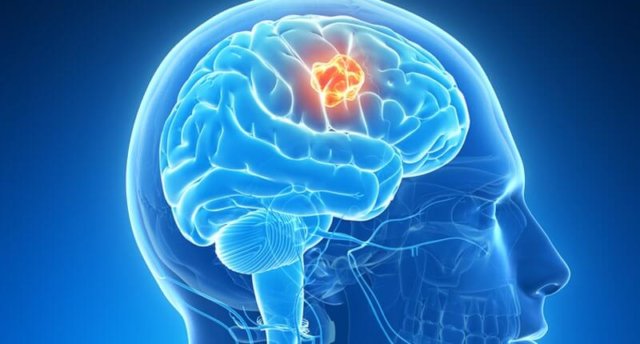Tumors of any form (may be Malignant Brain Tumor) refer to the condition of abnormal accumulation of cells forming a mass of tissue. Under normal condition, body cells grow, age, die and get replaced with newer cells. However, with cancer or tumor, this normal cycle is disrupted, and cells continue to grow forming mass of tissues that never die.
Brain tumors develop from cells that make the Central Nervous System and brain. Tumors may either be malignant or benign, depending upon the type of cells involved. Benign tumors are non cancerous; while, malignant tumors are cancerous that prove to be more severe and fatal sometimes. However, identifying early symptoms and then taking up necessary measures can fight brain cancers effectively.
India has been seeing a steady increase in brain tumor cases with every passing year. And Neurosurgeons suggest that learning about the preliminary warning signs, causes and treatments at an early stage can prevent the deadly disease from turning fatal.
Brain tumors have a number of treatment options, surgery being the most common of all. According to reports, Brain tumor surgery in India is one of the most commonly practiced medical remedies, available in most hospitals and neurological centers at affordable prices. However, prevention is always better than cure. Therefore, this post aims at discussing causes and early symptoms of malignant brain tumors that leads to early detection and thus cure during the initial stages.
Symptoms of Malignant Brain Tumor:
Depending on the size and location of tumor, there may be different symptoms experienced by patients. As the tumor grows, it exerts pressure on different parts of the brain and disrupts normal functioning. Below mentioned are few of the common symptoms of malignant brain tumors:
- Continuous drowsiness, nausea and vomiting
- Seizures or fits experienced in the lower or upper body. Sometimes these may get severe affecting the entire body.
- Severe headaches that is worse at night or early morning. Some may even experience sharp headaches while coughing or bending over.
- Vision problems are the most common symptoms related to brain tumors. Most people complain of blurred vision in the initial stages. Others complain of vision loss during the night or specific part of the day.
- Weakness and difficulty in doing day to day tasks
- Difficulty in speech or hearing
- Tingling in the arms and feet
- Unable to focus at one task at a time
- Confusion and memory loss as the disease progresses
- Personality changes
Note: Brain tumors may sometimes show no initial signs and symptoms apart from headaches that do not subside with usual doses and medicines. Therefore, if you or anyone in the family complains of repeated headaches, opting for diagnosis and checkup is mandatory.
Causes of Malignant Brain Tumors:
Primary causative of Brain Cancer cannot be summarized, as there are no single or direct factors that lead to brain cancers. Malignant tumors are secondary cancers as they originate from other parts of the body and then reach the central nervous system. There can be multiple reasons that lead to brain cancers. Some of the common reasons that lead to non cancerous brain tumors are; environmental factors, other health issues etc.
Diagnosis of Malignant Brain Tumors:
Diagnosis of Malignant Brain Tumors involves various physical and neurological examinations apart from laboratory tests. The following section entails various diagnosis procedures opted by doctors:
Physical examinations are initiated by the doctor through simple questions related to general health conditions. Your doctor may want to know if you are suffering from repeated headaches, dizziness or a general feeling of weakness. It must be noted that patients at this stage, need to be very precise about explaining their symptoms; as these decide the next course of action taken by the doctor.
Neurological examinations are then carried out by doctors based on the symptoms explained by patients during physical examinations. Neurological examinations involve testing of limb and hand strength, hearing and vision capabilities, skin sensitivity, balance coordination etc. Based on these examinations, neurologists may recommend few of the following laboratory tests:
- CT Scans
- MRI scans
- EEG
If any of these above mentioned tests indicate the presence of tumor, biopsy is mandatory to perform. Biopsy is a medical procedure involving the surgical removal of a small tissue to detect the presence of tumor and related information.
A detailed biopsy report narrates the type of tumor, size or any other relevant information that helps doctors to decide on the treatment plan.
Treatment options for malignant brain tumors:
As mentioned above, surgeries are the most common treatment options for cancerous brain tumors. However, most neurosurgeons performing brain tumor surgeries in India do recommend post surgery radiotherapy and/or chemotherapy to patients. This is because, even after surgical removal of cancerous cells, malignant brain cells have high probability of return. Rather many experts say that complete cure of this ailment is not possible as the cancerous cells return back after a while. Again, many a times, biopsy reports show the timorous growth to be in such a position where surgical removal of cancer may hamper other parts of the organ. In such a scenario, chemotherapy or radiotherapy is the only resolve.
Brain tumor Surgery is a major operation that aims at removing most of the cancerous cells. However, most of the time, chemotherapy and radiotherapy are carried out to destroy any remaining cancerous cells post operation. Find more information about brain tumor surgery and prices in India.
Chemotherapy is the use of medicines that destroy cancerous cells and reduce the chances of return to a great extent. Radiotherapy, on the other hand uses high energy radiation beam that kill cancerous cells and thus increase survival rate of patients.
Brain tumor cancer is definitely a difficult disease to fight. However, early detection and effective treatment help patients to lead close to normal lives for years. This is possible only when proper and timely follow-ups are carried out by patients.








